Israel struggling to contain attacks as Yemeni missiles rain down: US report
The Israeli regime is struggling to contain the material and humanitarian damage resulting from the Yemeni Armed Forces’ extensive missile strikes against the occupied Palestinian territories, according to a report.
The New York Times passed the observations in an analysis titled, “Israel Struggles to Halt Attacks From Yemen, Once Off Radar,” published on Sunday.
“Israel is being challenged by intensifying attacks” by the forces in Yemen, which is situated some 1,000 miles (1,609 kilometers) away from the occupied territories, it said.
‘Israelis kept awake at night’
The Yemeni forces, it said, are “keeping them (the Israelis) up at night — literally — with a string of attacks…and challenged by a lack of precise intelligence on the whereabouts of the forces’ leaders and weapons stores, Israel is struggling to stop them.”
The forces have markedly intensified their pro-Palestinian strikes against the territories and other Israeli targets.
The operations began following the Israeli regime’s launch of a war of genocide against the Gaza Strip last October.
The brutal military onslaught has so far claimed the lives of more than 45,500 Palestinians, mostly women and children.
'Israeli regime’s economic heart in crosshairs'
The Yemeni strikes have shifted their focus towards Tel Aviv, the Israeli regime’s economic heart, over the past several weeks, with the Arab country’s Armed Forces recurrently announcing successfully hitting the city with ballistic and hypersonic missiles.
As a means of trying to stop the pro-Palestinian operations, the regime and the United States, its closest ally, have been conducting unrelenting aerial assaults against Yemen, prompting the latter to also start targeting the American military assets that are deployed off the Yemeni coastline.
The Times likewise said the Yemeni forces had “recently escalated a campaign against Israel, launching ballistic missiles toward it almost nightly over the past week.”
The forces appeared to be undeterred even after the regime’s warplanes carried out their fourth and “most brazen” round of attacks against Yemen, the paper acknowledged.
The troops then fired a missile towards Tel Aviv before dawn on Friday and another around 2 a.m. on Saturday, setting off air raid sirens, it noted, besides repeating Tel Aviv’s recurrent allegations that the regime’s military had intercepted the projectiles.
Yemeni resilience
The daily, meanwhile, noted that the forces had withstood close to 10 years of a ferocious Saudi-led war on the Arab Peninsula nation as well as intense ongoing American and British aggression against the country.
Now, they are “displaying a similar resilience against Israel,” it stated.
The paper cited Zohar Palti, a former director of intelligence in Mossad, the regime’s spy service, and a former director of policy in its ministry for military affairs, as saying, “We have a problem,” adding that the regime on its own, did not have a “patent” for solving the problem.
It also quoted experts as saying that the regime’s “security establishment” had never prioritized Yemen and had not expended efforts in gathering intelligence on the country’s Armed Forces over the years.
The regime had “too many balls in the air,” Palti said, referring to its obsession with stopping Iran’s nuclear energy program, its ongoing war on Gaza as well as aggression against Lebanon and Syria.
“It’s a matter of investment,” he said. “It may take days, weeks or months, but in the end we will bring the intelligence.”
The Yemeni troops have, nevertheless, now turned into a “bizarre nuisance” for the regime, the paper wrote.
It cited a unique drone strike by them that saw the aircraft taking a different route, flying in from the west over the Mediterranean coast and evading the regime’s missile systems and hitting an apartment building in Tel Aviv, the regime’s economic heart, killing one man and wounding several other people.
“The warhead of one ‘intercepted’ missile badly damaged a school in a Tel Aviv suburb this month, landing at night when the building was ‘empty.’ Another missile got through and struck a playground in Tel Aviv, damaging the surrounding apartment buildings and slightly wounding 16 people,” the daily reported.
Lip-service
It also pointed to the regime’s ramping up of its “tough talk” concerning Yemen, such as prime minister Benjamine Netanyahu’s claiming that the country “will learn what Hamas, Hezbollah, the [Bashar] Assad regime, and others have learned.”
“We are just getting started with them.” Israel Katz, the regime’s war minister, also alleged, vowing to “hunt” Yemen’s leaders.
The daily cited director of the World Health Organization, Dr. Tedros Adhanom Ghebreyesus, who was at the International Airport at Yemen’s capital Sana’a during an Israeli attack, as saying that the aggression had damaged the air traffic control tower, the departure lounge, and the runway at the facility.
It also cited analysts as noting that damaging Yemen’s national infrastructure was not likely to stop the country’s forces from striking the occupied territories.
'Willing to go very, very far'
The forces have, themselves, similarly vowed to sustain their operations until the regime ceased its regional violations.
“They (the forces) don’t care and they are willing to go very, very far,” said Farea al-Muslimi, a Yemeni research fellow at Chatham House, a London-based research institute.
They have “jumped into the front carriage of the Axis of Resistance train,” the expert noted, referring to the region’s anti-Israeli fighters.
Since Oct. 7, 2023, the troops have cemented their presence as a global actor, and they were likely to hold out in their fight against the regime.
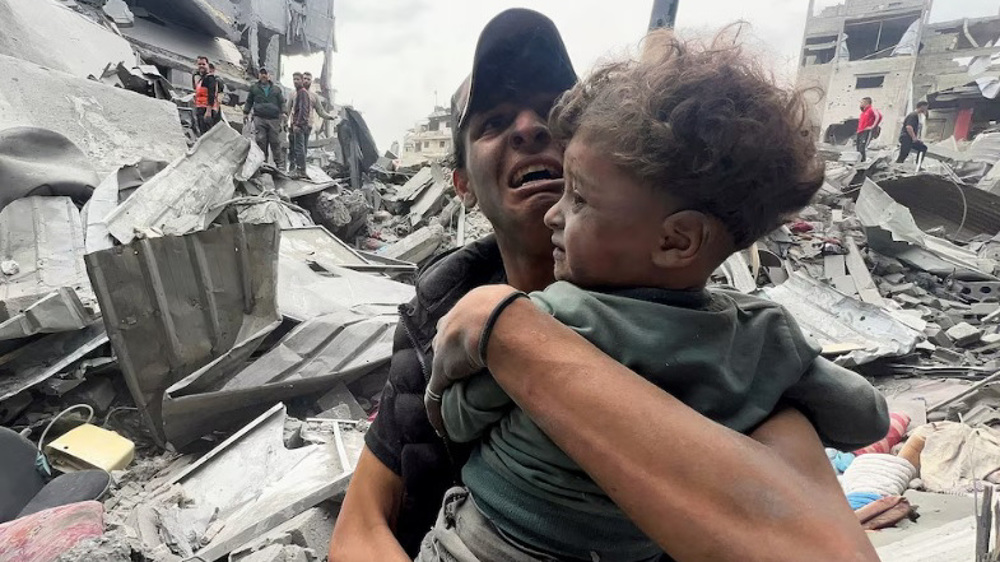
Mostly women, children killed as Israel expands Gaza onslaught
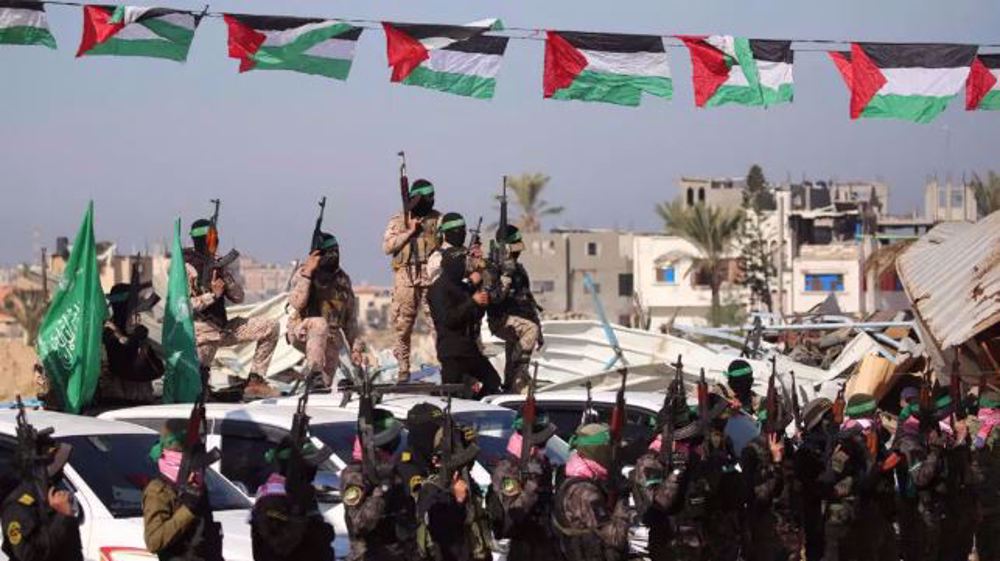
Israeli report: Only 25% of Hamas tunnels destroyed after months of war
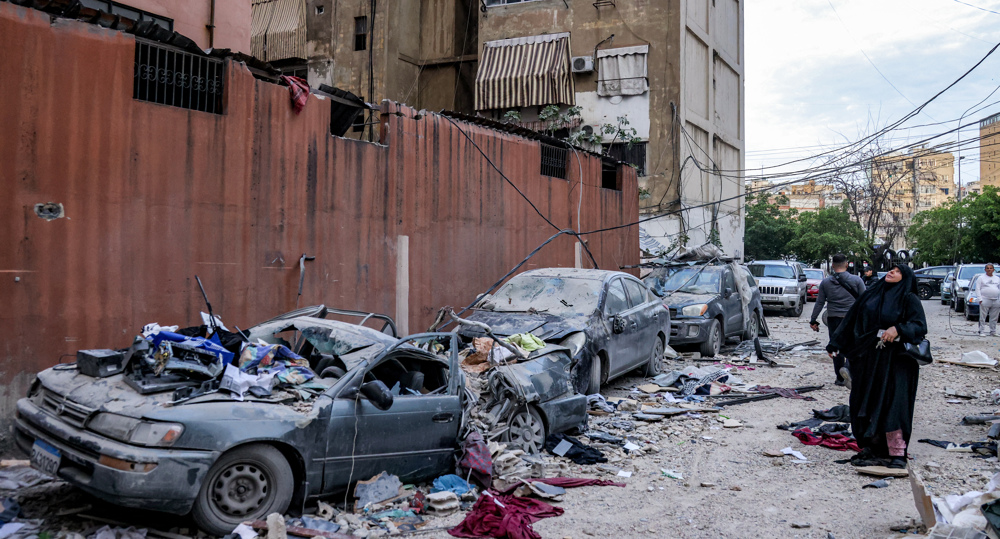
US bans Arab states from supporting Lebanon, Syria reconstruction: Report
Leaked docs. expose Israeli censorship campaign to erase pro-Palestinian content online
Yemen targets Israeli military sites in Jaffa in retaliation for Israel’s Gaza genocide
Leaked emails show German officials pressing staff into deporting pro-Palestine activists
Thousands of Pakistanis rally to censure Israeli crimes in Gaza
‘Gaza is not alone’: Yemenis hold million-man protests to show solidarity with Palestinians
VIDEO | Iranians rally to condemn Israeli atrocities in Gaza
VIDEO | Record surge in Israeli home demolitions across occupied West Bank
VIDEO | Entire family killed in Israeli strike on house


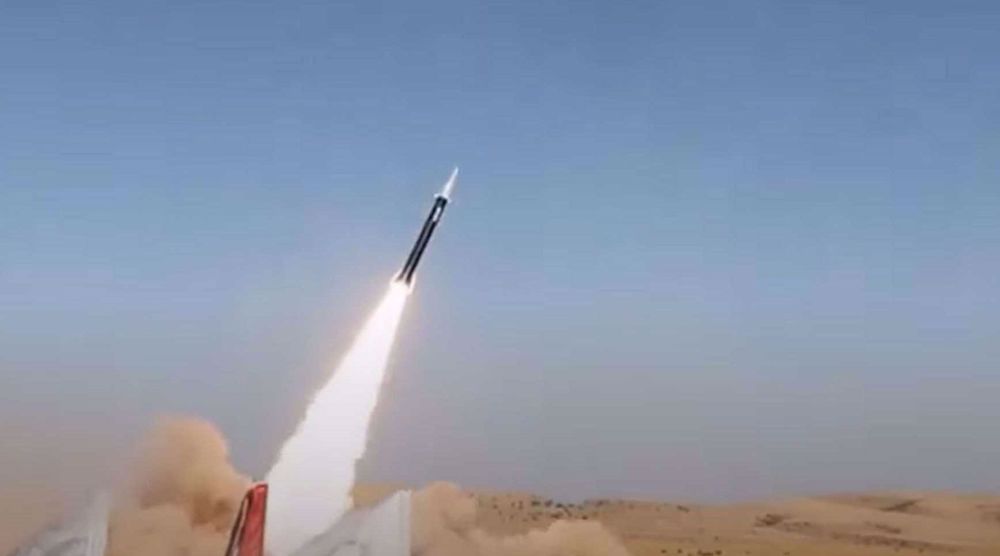
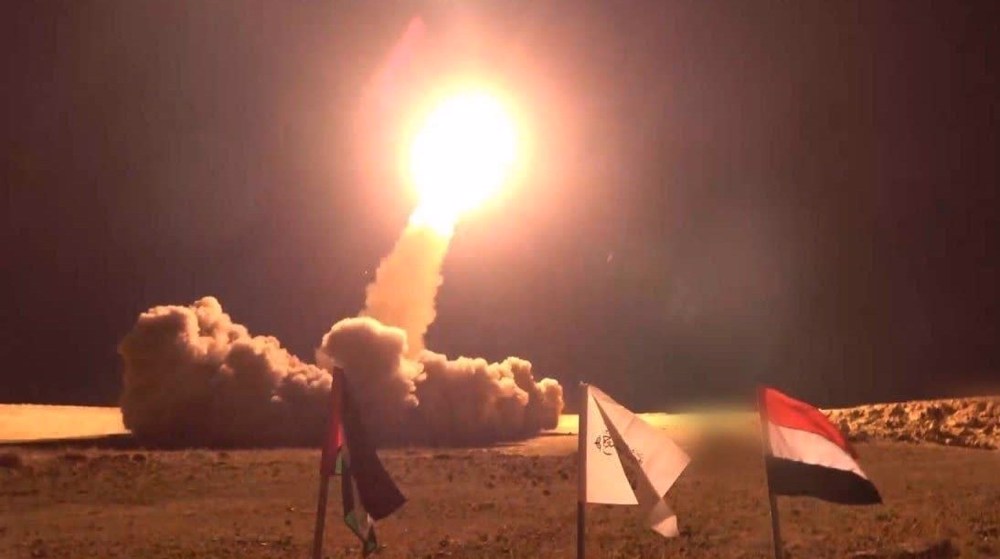




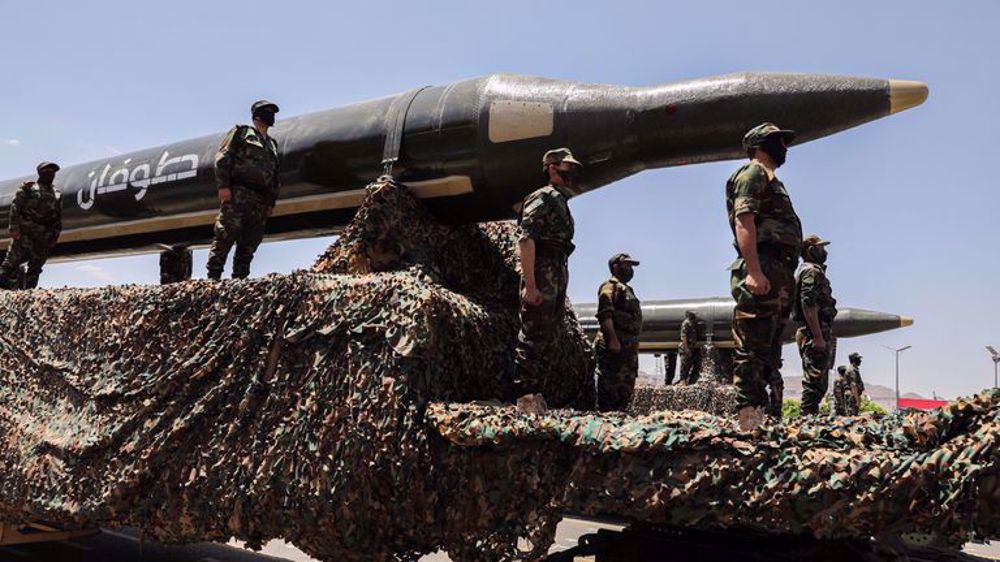
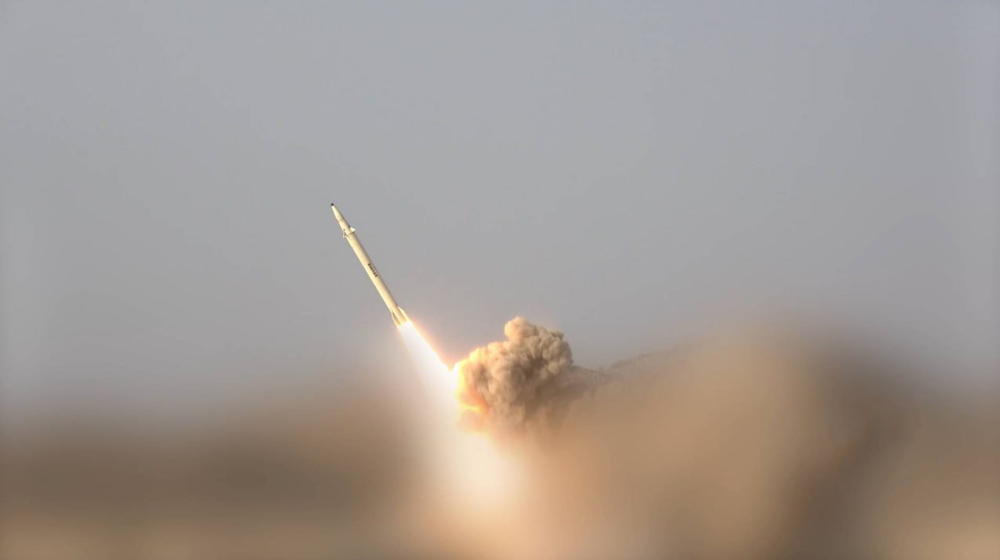
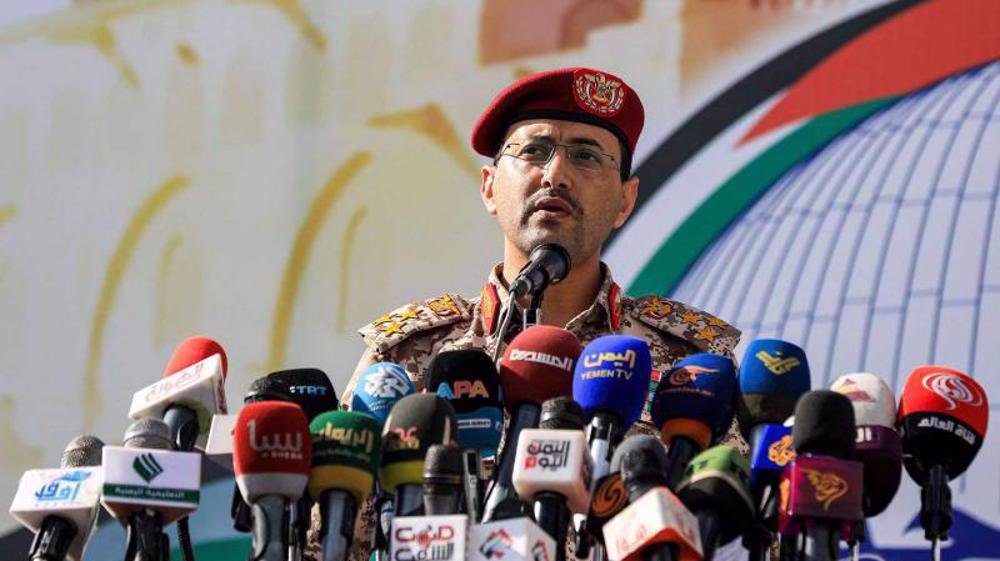

 This makes it easy to access the Press TV website
This makes it easy to access the Press TV website